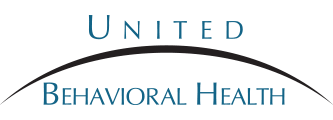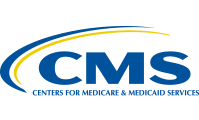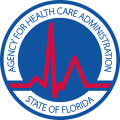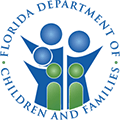Don’t delay getting the help you deserve. Our professionals are ready to guide you with compassion and respect.
What is High THC Marijuana Abuse
Understanding High THC Marijuana Abuse
Tetrahydrocannabinol, or THC, is the psychoactive substance in marijuana. This is a natural product, however advances in cultivation have enabled growers to produce strains of marijuana with larger and more potent amounts of THC. These high THC marijuana strains are much stronger than the versions that were used in previous decades. Additionally, an increased popularity exists with THC-infused food products, which are known as edibles and can also produce much more powerful effects.
Despite marijuana having some safe and medicinal uses, marijuana strains containing higher concentrations of THC may still pose a variety of risks if abused. Some individuals choose to use these new high THC strains to achieve a more intense high, but more traditional, less potent marijuana can also be ingested in a manner that allows for large doses of THC to be absorbed into your system at once.
There are methods of extracting the THC in a marijuana plant that result in sticky oils commonly referred to as dabs that can be smoked or mixed into edibles. Using a solvent such as butane or carbon dioxide, the THC is concentrated and the result is a highly potent substance that may pose a threat to your health and safety. While the traditional view is that you cannot overdose on marijuana as is the case with harsher drugs, the influx of dabbing has proved to be dangerous in that it allows for an easier means of ingesting far more THC than your system can process. This can lead to outcomes like passing out, an uncomfortable high, and possibly amplified withdrawal symptoms for habitual users.
When someone abuses high THC strains of marijuana by smoking or eating the drug, he or she can begin to experience many effects that can be upsetting. The abuse of this substance can cause the following effects:
- Impaired coordination
- Cognitive delays
- Decreased ability to perceive time and space
- Lethargy
- Hunger
- Distortions
These effects are stronger than those experienced with marijuana that has regular levels of THC.
Similar to other forms of addiction, becoming dependent on high THC strains of marijuana is characterized by an inability to control the amount and frequency in which the drug is being abused, needing larger amounts of the drugs to achieve the desired high, and the onset of painful symptoms of withdrawal when the use ceases. Someone who has developed a dependency on high THC strains of marijuana can receive the best treatment within a professional rehab center. In rehab, an individual will work with talented and skilled professionals who are able to help them obtain the support needed to go on and live happy, successful lives.
Statistics
Statistics of High THC Marijuana Abuse
THC levels in marijuana have increased by nearly 300% in recent decades, according to a study that was presented at the National Meeting & Exposition of the American Chemical Society (ACS) in 2016. This study included tests conducted by state-certified laboratories in Colorado, which showed that some marijuana strains today are made up of 30% THC, which is an increase from 10% in the 1980s. Also, the National Institute on Drug Abuse (NIDA) reports that about 19.5% of Americans will abuse marijuana in a typical month, and the Drug Abuse Warning Network (DAWN) states that marijuana abuse was involved in over 455,000 emergency room visits in 2011 alone.
Causes
What are the Causes of High THC Marijuana Abuse
One’s risk for abusing and becoming addicted to high THC strains of marijuana can be impacted by several factors, such as:
Genetic: Strong research supports the fact that if an individual has one or more family members who are addicted to high THC strains of marijuana or other drugs, he or she is at increased risk for suffering from a similar issue in his or her life. The American Psychiatric Association (APA) reports that nearly 80% of risk variance for cannabis addiction can be due to genetics.
Environmental: Using tobacco or marijuana when young can increase one’s chances of developing an addiction to high THC strains of marijuana, which is also known clinically as cannabis use disorder. Other environmental influences can include living in an unstable and/or abusive home, failing in school, and associating with others who abuse this substance.
Risk Factors:
- Antisocial personality disorder
- Personal history of trauma
- Abusing high THC marijuana, tobacco, or other substances at a young age
- Conduct disorder
- Low socioeconomic level
- Youth (abusing high THC marijuana prior to age 21)
- Family history of mental illness and/or substance abuse
Signs and Symptoms
Learn More About the Signs and Symptoms of High THC Marijuana Abuse
Substance abuse can be recognized through many signs and symptoms, as there is no one solitary warning sign that someone is abusing a high THC strain. Some of the most common symptoms of someone who has been abusing high THC strains of marijuana include the following:
Behavioral symptoms:
- Abusing high THC strains of marijuana when it is obviously dangerous to do so, such as immediately prior to operating a motor vehicle
- Continuing to abuse high THC strains of marijuana even after experiencing negative outcomes
- Being deceptive or uncharacteristically secretive regarding one’s whereabouts or activities
- Associating with a new peer group
- Prioritizing the abuse of high THC strains of marijuana over friends, family, and significant activities
- Multiple unexplained absences from work or school
- Diminished performance at work or in school
- Having rolling papers, a water pipe, or other items that are commonly used to abuse high THC marijuana
- Acting with uncharacteristic risk, recklessness, or danger
Physical symptoms:
- Dry mouth
- Balance and/or coordination problems
- Increased appetite
- Pervasive sleepiness
- Lethargy
- Bloodshot eyes
- Impaired motor functions
- Delayed reactions
Cognitive symptoms:
- Impaired cognition
- Poor judgment
- Memory problems
- Lack of concentration and/or focus
Psychosocial symptoms:
- Withdrawal
- Agitation
- Paranoia
- Irritability
- Mood swings
Effects
Understanding the Effects of High THC Marijuana Abuse
When someone continues to abuse high THC strains of marijuana but does not obtain professional care at a rehab center, he or she can suffer from the following effects:
- Strained or ruined interpersonal relationships
- Arrest and incarceration
- Social withdrawal and isolation
- Job loss and unemployment
- Financial problems
- Family discord
- Damage to heart and/or lungs
- Bronchitis
- Diminished immune system functioning
- Physical injury due to impaired cognition, perception, and/or coordination
- Sexual dysfunction
- Other types of substance abuse
- Cognitive delays
- Academic failure
Withdrawal and Overdose
Learn More About the Effects of High THC Marijuana Withdrawal and Overdose
When someone has developed a dependency on high THC marijuana strains, attempting to end abuse can lead to the development of many withdrawal symptoms, including:
- Sexual dysfunction
- Sleep disruptions
- Lost appetite
- Problems with concentration or focus
- Intense cravings for high THC strains of marijuana
- Depression
- Irritability and agitation
- Dizziness
Co-Occurring Disorders
High THC Marijuana Addiction and Co-Occurring Disorders
Those who abuse a high THC strain of marijuana can develop cannabis use disorder, and might have a greater risk of developing specific co-occurring mental health disorders, such as:
- Obsessive-compulsive disorder (OCD)
- Post-traumatic stress disorder (PTSD)
- Other substance use disorders
- Bipolar disorder
- Anxiety disorders
- Attention-deficit/hyperactivity disorder (ADHD)
- Depressive disorders
- Antisocial personality disorder











